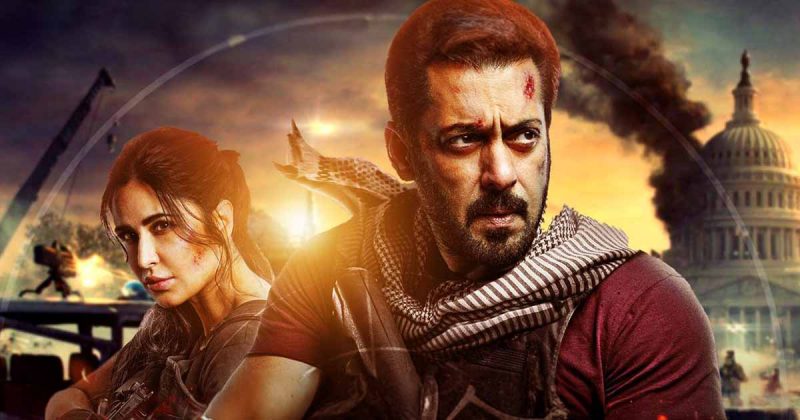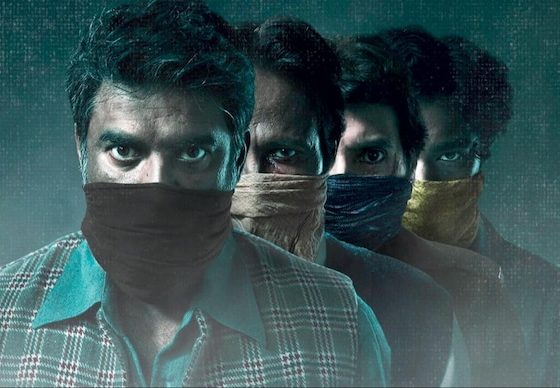Back when “Ek Tha Tiger” came out in 2012, Salman Khan was vexingly providing the industry with one massive hit after the other. I say that, because most of those films watered down the basic rules of storytelling (including suspension of disbelief) by simply acting as tourist guides through foreign countries. The films superficially preached the theme of love in face of divide, only for its hero – who was then at the prime of his career – to eventually succumb to the temptations of bloodily killing off the ‘bad’ guys.
But almost five years after the release of the first Tiger film, Ali Abbas Zafar’s 2017 sequel seemed to embrace the retrograde, bloated, and formulaic approach of most spy thrillers with a much more aplomb command. The central dilemma of the story this time around wasn’t just about a hard-nosed national duty coming in the way of an emotionally nurturing personal life. Instead, we now saw Salman playing a father on screen; by turning Salman’s popular image of a do-gooder by nature, the makers made sure he no longer served to bask in the glory of his past, but now became vulnerable to the emotional stakes that engulf his home. Ironically, this was also the time when the hyper nationalist wave was beginning to sweep over India, where people either upheld or doubted others’ legitimacy of being a true patriot.
The announcement of “Tiger 3” came in with a heavy load of expectations. The film didn’t only have to live up to the success of its previous two films, but also to the colossal caused by the recent entry into what has now become a franchise. The YRF spy universe was announced before the release of Pathaan in January. It arguably began with the first Tiger film. But now more than a decade later, the sensibilities around making an espionage film in India have changed.
This time, the stakes ask Tiger to save a warring nation from itself. The threat isn’t on the border, but across it. Because Rogue Pakistani agent Aatish (Emraan Hashmi) wants to shove aside his country’s Prime Minister (Simran) after having been wronged by the state. His plan of launching a coup starts by making Tiger doubt the loyalty of his own wife, Zoya’s (Katrina Kaif). Tiger must choose between his nation and saving a personal loved one, all while becoming a suspect in the eyes of his new boss Menon (Revathi).
While the earlier Tiger films drew the graphic distinction between the ‘good Muslim’ and the ‘bad Muslim’ to preach the notion of love over religion, “Tiger 3” uses its central couple’s peculiar pairing to debate the very merits of a democracy. Aatish’s entry and exit scenes not only pose as the moral reckoning of the film’s heroes, but also represents the charisma of a new- age nationalism. Will Pakistan be able to hold over its democratic institutions before their army brings about its destruction at the hands of Aatish? Things only begin to get tricky when Tiger becomes the (self imposed) person in-charge to carry out this noble duty.
The action here goes city-hopping in Austria, Russia and Turkey with the kind of frenetic, photogenic energy that wouldn’t allow you to see through the glaring contributions in the plot. But that’s not the problem with “Tiger 3”. The film is devoid of any sort of richness or texture that most films in the YRF spy universe tend to have. The brief moments of buddy comedy featuring a cameo work well, but the action around them seems so redundant and without texture that none of it ever gets registered. The result is a film that feels consistently busy but never immersive.
Can a hero become a zero? This is the theme that all Tiger films have explored. This is the exact opposite of commercial action-oriented storytelling, where we usually root for the stories of people who strive to be something. In a franchise that’s largely tagged as being apolitical given its genre limitations, the YRF spy films have increasingly been playing around with the idea of spies that tend to have a more nuanced and informed notion of what their patriotic duties entail.
With “Tiger 3”, however, a lot of that nuance comes across as moral posturing. But then again, it’s also a ‘patriotic’ film that almost entirely takes places in Pakistan. For a studio that’s largely earned its reputation by celebrating the idea of harmony, I could see the choice diminishing the psychological borders we have ourselves barbed around. Perhaps it needs to pick compelling filmmakers who are more attuned with the sensibilities of the genre to get that message across. You can’t challenge sentiments without that, especially during times when the line separating democracy and dictatorship seem all too blurry.











